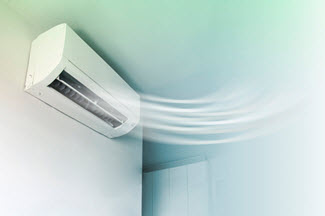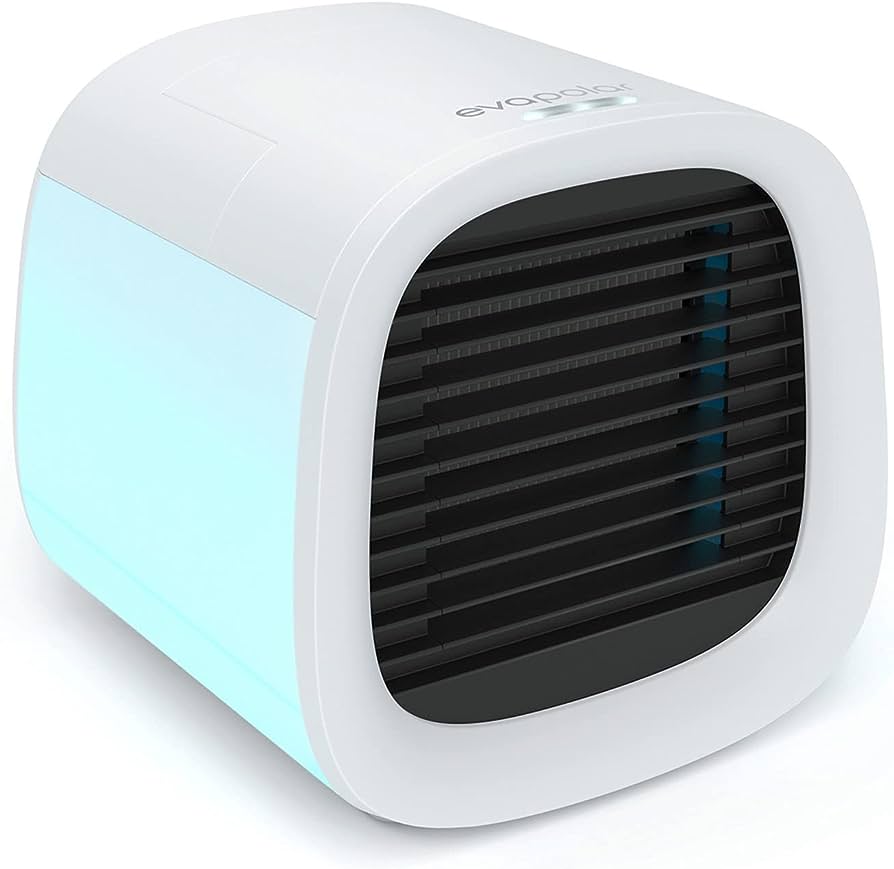Small in-room air conditioners provide efficient cooling for compact spaces, making them an ideal solution for smaller rooms and apartments without central cooling systems. These compact units are designed to cool a specific area, such as a bedroom or office, and are easy to install and maintain.
With their compact size and energy-efficient features, small in-room air conditioners offer a cost-effective and convenient way to stay cool and comfortable during the hot summer months. Experience the benefits of a compact and efficient cooling solution with a small in-room air conditioner.
Why Small Air Conditioners Are Perfect For Small Rooms
Small air conditioners are ideal for compact spaces due to their numerous benefits. These AC units provide efficient cooling despite their small size. Their compact design allows them to fit seamlessly into small rooms, making them a popular choice for apartments, dormitories, and small offices.
Benefits Of Using Small Ac Units In Compact Spaces:
- Space-saving: Small air conditioners are specifically designed to occupy minimal space, making them perfect for small rooms with limited floor area. They can be mounted on walls or placed in windows, freeing up valuable space.
- Energy efficiency: Despite their size, small AC units are highly efficient in cooling small spaces. They offer targeted cooling, ensuring that only the necessary areas are cooled, which helps reduce energy consumption.
- Cost-effective: Small air conditioners are generally more affordable than larger units. They require less power to operate, resulting in lower electricity bills. Additionally, their compact size makes them easier to maintain and repair.
- Simple installation: Installing a small air conditioner is often a straightforward process that can be done without professional assistance. This saves both time and money.
Factors To Consider When Choosing A Small Air Conditioner:
| Size of the room | Ensure the AC unit has the appropriate cooling capacity to cool the square footage of your room. |
|---|---|
| Energy efficiency rating | Look for AC units with high energy efficiency ratings, such as the Energy Star label, to maximize energy savings. |
| Noise level | Consider the noise emitted by the AC unit to ensure it doesn’t disturb your daily activities or sleep. |
| Installation requirements | Choose an AC unit that aligns with your installation preferences, whether it’s a window-mounted unit or a wall-mounted one. |
| Additional features | Check for additional features such as adjustable thermostat, remote control, and multiple fan speeds for added convenience. |
When it comes to cooling small rooms, small air conditioners prove to be efficient, cost-effective, and space-saving solutions. Consider these factors before selecting the perfect small AC unit for your compact space.
Sizing And Btu Calculation For Small Room Air Conditioners
A small room air conditioner can be a great solution to keep your space cool and comfortable during hot summer days. However, it is important to choose the right size and BTU rating for optimal performance. When determining the appropriate BTU rating for a small room, it is essential to understand the relationship between room size and BTU requirements. Remember that a higher BTU rating does not necessarily mean better cooling, as an oversized air conditioner can result in inefficient operation and higher energy consumption.
Calculating the ideal BTU capacity for your small space can be done by considering factors such as room size, insulation, and sun exposure. It is recommended to measure the length, width, and height of the room in feet and multiply them to get the total cubic footage. This calculation can then be used to determine the appropriate BTU rating using a guideline or chart provided by manufacturers.
Additionally, taking into account the insulation quality and the amount of sun exposure the room receives can help fine-tune the BTU calculation. Rooms with good insulation and less sun exposure may require fewer BTUs, while poorly insulated rooms or those exposed to direct sunlight may need a higher BTU rating.
By ensuring the right size and BTU rating, you can enjoy efficient cooling and energy savings with your small room air conditioner.
Features To Look For In Small Room Air Conditioners
Small room air conditioners are a great option for cooling smaller spaces without consuming excessive electricity. When looking for the perfect unit, keep in mind a few key features. Energy-efficient options can help reduce electricity bills in the long run. Additionally, consider the noise level of the air conditioner to ensure undisturbed relaxation. Look for units with user-friendly controls and remote access features for added convenience. Some air conditioners also come with air purifying and filtering capabilities, ensuring clean indoor air. Choose a unit that suits your specific needs and preferences to enjoy a cool and comfortable environment.
Installing And Setting Up Your Small Air Conditioner
|
Installing and setting up a small air conditioner can be a straightforward process with the right approach. Follow these step-by-step guidelines to ensure proper installation:
To maximize airflow and positioning, consider the following tips:
Setting up and programming the thermostat is crucial for optimal comfort. Follow these steps:
|
Maintaining And Cleaning Small Air Conditioners
Regular maintenance is essential to ensure the high performance of your small room air conditioner. Cleaning your AC unit regularly is the key to keeping it dust-free and efficient. To clean the unit, start by turning off the power and unplugging it. Use a soft cloth and mild detergent to wipe the exterior of the unit. Make sure to remove any dirt or debris from the vents and grills. Inside the unit, remove the filter and clean it with warm, soapy water. Rinse it thoroughly and let it dry completely before putting it back in. It is important to also check the filter regularly and replace it if it is damaged or clogged. Taking these cleaning techniques and filter maintenance guidelines into consideration will help extend the lifespan of your small room air conditioner and keep it running smoothly.
Troubleshooting Common Issues With Small Room Air Conditioners
| Issue | Troubleshooting Tips |
| 1. Air conditioner not cooling efficiently | Ensure the air filter is clean and not clogged. Clean or replace if necessary. Check if the thermostat is set to the correct temperature. Clean the condenser coils to improve airflow. |
| 2. Strange noises coming from the unit | Inspect the fan blades for any obstructions. Tighten loose screws or bolts. Lubricate the motor and fan bearings if required. If noise persists, a malfunctioning motor or compressor may be the issue. |
| 3. Water leaking from the unit | Check if the condensate drain line is clogged. Clean or unclog the drain line. Ensure proper installation of the unit to allow water to drain outside. Consider adding a condensate pump if necessary. |
- Check the power supply and ensure the unit is plugged in correctly.
- Inspect the circuit breaker or fuse box to ensure no tripped breakers or blown fuses.
- Make sure the air vents are not obstructed and allow proper airflow.
- Reset the unit by turning it off for a few minutes and then turning it back on.
- Refer to the user manual for specific troubleshooting steps.
- If the air conditioner has major mechanical issues or requires part replacement.
- If the troubleshooting steps do not resolve the problem and the unit continues to malfunction.
- If you are unsure about performing complex repairs or dealing with refrigerant-related issues.
Extending The Lifespan Of Your Small Air Conditioner
Proper maintenance practices are essential for extending the lifespan and functionality of your small air conditioner. To reduce wear and tear on your AC unit, you should follow these tips:
- Clean the air filters: Regularly clean or replace the air filters to ensure proper airflow and prevent dust and debris buildup.
- Keep the condenser coils clean: Dirty condenser coils can impede cooling efficiency. Clean them regularly to ensure optimal performance.
- Check for refrigerant leaks: Low refrigerant levels can strain the compressor and decrease efficiency. Regularly inspect for leaks and recharge if necessary.
- Maintain the outdoor unit: Keep the outdoor unit free from debris, vegetation, and obstructions to allow proper airflow and prevent overheating.
- Ensure proper insulation and sealing: Minimize air leaks in your home to reduce the workload on your air conditioner. Proper insulation and sealing can improve energy efficiency.
- Limit frequent on/off cycles: Avoid frequently turning the air conditioner on and off. Maintain a consistent temperature to reduce strain on the unit.
By following these maintenance practices, you can prolong the lifespan of your small air conditioner and enjoy efficient and effective cooling for years to come.
Small Air Conditioners Vs. Window Units: Pros And Cons
Small air conditioners vs. window units: Pros and Cons
| Comparison of small AC units and window units |
|---|
| Advantages and disadvantages of small air conditioners |
| Small air conditioners are compact and portable, making them ideal for small spaces or rooms with limited installation options. They are easy to install and do not require any major modifications to the existing structure. These units are energy-efficient and can provide targeted cooling to specific areas. |
| However, small air conditioners have lower cooling capacity compared to window units. They may not be suitable for cooling larger rooms or multiple rooms simultaneously. Additionally, some small air conditioners may produce more noise and require regular maintenance. |
| Factors to consider when deciding between the two options |
| When deciding between small air conditioners and window units, there are a few factors to consider. Firstly, the size and layout of the room. Small air conditioners work well for compact spaces, while window units are better suited for larger areas. |
| Secondly, the installation requirements. Small air conditioners are easy to install and can be moved around as needed. Window units, on the other hand, require a dedicated window space for installation. |
| Lastly, the cooling needs and energy efficiency. Small air conditioners are suitable for spot cooling and can be more energy-efficient when used in the right conditions. Window units, however, may offer higher cooling capacity and efficiency for larger spaces. |
High-rising Efficiency: Energy-saving Tips For Small Air Conditioners
Small room air conditioners are known for their high efficiency and energy-saving capabilities, making them a popular choice for limited spaces. Maximizing energy efficiency is key, and there are several tips you can follow to achieve this. Firstly, reducing the run time of your AC unit without sacrificing comfort is crucial. To do this, ensure proper insulation, seal any air leaks, and use fans to circulate cool air effectively. Secondly, there are low-cost methods for lowering energy consumption. For instance, using a programmable thermostat can help optimize cooling settings based on your schedule. Additionally, cleaning or replacing air filters regularly can improve airflow and reduce energy usage.
Finding The Perfect Small Air Conditioner For Your Room
Choosing the right small air conditioner involves considering a few important factors:
Factors To Consider When Shopping For Small Ac Units:
- Room size: Measure the square footage of your room to determine the appropriate cooling capacity needed.
- Energy efficiency: Look for units with a high energy efficiency ratio (EER) to save on energy consumption.
- Noise level: Consider the noise level of the air conditioner, especially if you are a light sleeper or need a quiet environment.
- Installation: Check if the unit requires professional installation or if it can be easily installed by yourself.
- Features: Evaluate additional features such as programmable timers, remote controls, and adjustable fan speeds.
- Maintenance: Determine the ease of cleaning and maintaining the air conditioner for long-term use.
When it comes to small room air conditioners, there are several popular brands and models to consider:
| Brand | Model | Features |
|---|---|---|
| Brand A | Model X | Programmable timer, adjustable fan speed |
| Brand B | Model Y | Remote control, energy-saving mode |
| Brand C | Model Z | Quiet operation, easy installation |
Reading reviews and recommendations can also help in making an informed decision. Look for customer feedback on various small room air conditioners to gain insights into their performance and reliability.
Conclusion: Enjoy Cool Comfort In Your Small Space
| Recap of the benefits and features of small air conditioners: |
| – Small in size, making them perfect for compact spaces. |
| – Efficient cooling capability, ensuring cool comfort even in small areas. |
| – Portable and easy to install, providing flexibility to move them from one room to another. |
| – Energy-efficient, saving you money on your electricity bills. |
| – Quiet operation, allowing for peaceful enjoyment of the cooling air. |
When choosing the best small air conditioner for your tiny area, it’s important to consider a few key factors. First, determine the size of the space you need to cool and choose an appropriately sized unit. Next, look for energy-efficient models with high EER ratings to ensure cost-effective operation. Consider the noise level produced by the air conditioner as well, especially if you plan to use it in a bedroom or workspace. Additionally, look for models with features such as programmable timers and remote controls for added convenience.
In conclusion, small air conditioners offer a range of benefits for cooling small spaces. Their compact size, efficient cooling capability, and portability make them an ideal choice for apartments, small rooms, or offices. With the right unit, you can enjoy cool comfort and beat the heat even in limited areas.


Credit: www.skylandsenergy.com
Frequently Asked Questions For Small In Room Air Conditioners
What Are The Benefits Of Using Small Room Air Conditioners?
Small room air conditioners provide several benefits, including energy efficiency, compact size, and targeted cooling. They are designed to cool smaller spaces efficiently, helping to lower energy costs. Their small size makes them ideal for apartments or small rooms where traditional air conditioners won’t fit.
Additionally, they provide targeted cooling in specific areas, allowing you to stay comfortable without wasting energy cooling empty spaces.
How Do Small Room Air Conditioners Work?
Small room air conditioners function by extracting heat from the room and dissolving it outside. They use a refrigeration cycle that involves compressing and evaporating a refrigerant to absorb and release heat. This process cools the air inside the room and removes humidity, creating a comfortable indoor environment.
Are Small Room Air Conditioners Easy To Install?
Yes, small room air conditioners are typically easy to install. They come with installation kits that include all the necessary components, such as brackets, screws, and exhaust hoses. Most models can be installed by following the manufacturer’s instructions, without the need for professional assistance.
However, it is important to ensure the unit is properly sized and properly positioned for optimal performance and safety.
Can I Use A Small Room Air Conditioner For Larger Rooms?
While small room air conditioners are designed for smaller spaces, they may be able to cool larger rooms to some extent. However, their cooling capacity may not be sufficient to fully cool a large room, resulting in decreased efficiency and longer cooling times.
It is recommended to choose an air conditioner that is appropriately sized for the room you want to cool for optimal performance and energy efficiency.
Conclusion
Overall, small room air conditioners offer a convenient and effective solution for cooling small spaces. With their compact size and easy installation, they are perfect for apartments, offices, and other limited areas. By efficiently cooling the air and providing comfort, these units allow users to escape the heat hassle-free.
Additionally, their energy-efficient features make them a cost-effective and environmentally friendly choice. Upgrade your space with a small room air conditioner and enjoy a cool and refreshing atmosphere all year round.


